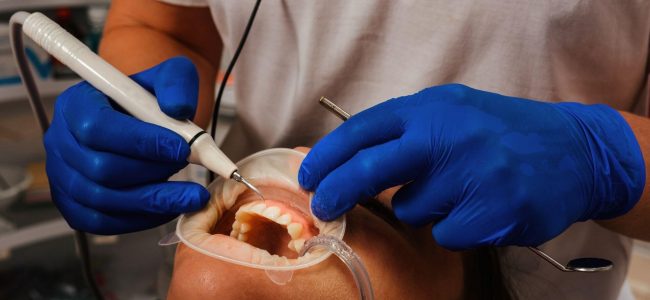What Causes Tartar Buildup?
You know the importance of brushing, flossing, and swishing with mouthwash regularly. These activities done at the beginning and end of your day can help prevent tartar buildup on your teeth. But do you know what causes tartar buildup and why it happens?
We take care of our teeth regularly, just like we do with the rest of our bodies. Brushing, flossing, and rinsing all help to prevent bacteria from damaging your teeth. Tartar is a type of dental plaque that is a combination of bacteria, proteins, and food byproducts that can build up on your teeth and end up causing cavities and other issues.
Continue reading to learn more about what causes tartar, how tartar affects your teeth and gums, and how to prevent tartar buildup.
How Tartar Affects Your Teeth and Gums
Tartar is a specific type of buildup that can form both below and above the gum line, which means it can affect both your teeth and your gums. Plaque builds up over time, and once it hardens, it becomes tartar. This hardened combination of bacteria and byproducts can end up causing receding gums, gum disease, and even tooth decay.
Tartar can build up underneath your gums and cause them to recede, which means they end up exposing more of your tooth. Tartar above the gumline can irritate your gums, causing redness and irritation, and can even lead to you developing gum disease. Tartar buildup on your teeth can also make it more difficult for your toothbrush and floss to clear out the buildup on your teeth and end up leading to cavities and decay.
What Does Tartar Come From?
Certain foods can cause an increase in tartar buildup on the gums and teeth. Bread, pasta, and other starchy foods can cause tartar buildup that feels like rough spots on your teeth. Certain sugary drinks like sodas and sweet tea can also contribute to an increase in tartar buildup on the teeth and gums.
You might also be surprised to learn that the toothpaste you use might not actually help to prevent tartar buildup on your teeth. Certain brushing and flossing techniques may also be ineffective at reducing tartar buildup.
Unhealthy activities like smoking can also cause tartar to accumulate on your teeth and gums. Tartar can build up in harder-to-reach places like in between your teeth, so it is important to floss every day to clear out the plaque in those areas before it can turn into something more serious.
How to Prevent Tartar Buildup
When you brush your teeth every day, you are breaking down the plaque that is trying to coat your teeth and gums. Flossing between your teeth and rinsing your mouth with antiseptic can also help to remove plaque before it has a chance to turn into tartar.
Because tartar is harder and more calcified, it is more difficult to remove. That’s why daily dental hygiene routines focus on removing plaque before it can develop into tartar. It can take just a few weeks for plaque on your teeth to turn into tartar buildup that will typically require intervention from your dentist to remove.
Talk to your dentist about a recommended antiseptic mouthwash that can more effectively kill bacteria in your mouth that causes plaque and tartar. You can also try an electronic or battery-powered toothbrush and tartar-control toothpaste that contain fluoride to help prevent plaque from plaguing your teeth and turning into tartar.
Visit Your Dentist for Tartar Removal
Ideal Dental provides a wide range of dental services in a variety of locations. Visit us to learn more about how our dentists can help with tartar removal, so you can leave with a confident smile on your face!
